Civilization 6 is a fantastic strategy game and an instant beacon for the genre that will surely influence PC strategy games—and real-life board games—for years to come. The latest installment in Sid Meier’s Civilization series builds a whole new kind of game on the bones of Civ V, a game that it superficially shares a lot in common with. In truth, it’s in most ways a dramatic departure. Shepherded by Firaxis Games and lead designer Ed Beach, Civilization 6 comes very close to being the greatest game in the series—and only time will tell if it will truly claim that crown.
Civilization 6 Review: Better Than Civ V, Maybe As Good As Civ 4
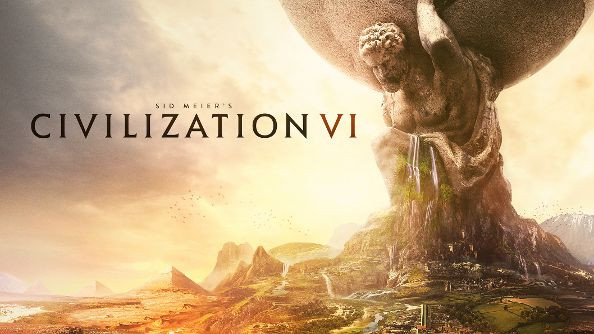
At first glance, Civilization 6 has a lot in common with Civilization V, and this is by design. Most Civilization games reinvent the wheel and add a few new big features; Civ 6, however, accepts the legacy of Civ V and builds an entirely different game on top of it, resulting in a game that far surpasses what came before. Civilization 6 is a strategy game that, quite simply, has a hell of a lot more strategy in it. Civ 6 presents players with more options than ever. That new complexity elevates the game close to the levels of the hardcore strategy genre best represented by Paradox Development Studio. And it all starts with the map.
Civilization 6 Is A Board Game
It’s no surprise that Civ 6’s lead designer Ed Beach was once a board game designer, creator of the acclaimed (and very complex) Virgin Queen. That’s because Civilization 6 feels in many respects like a board game—specifically, modern German-style games like Carcasonne, Agricola or the games of Reiner Knizia (if you’ve never heard of these, check them out!). I’m hardly the first to cite the new importance of the map in Civilization 6, but it really has become everything. Districts, the game’s most-touted feature, link players to the map in a new way and make decisions about how your cities develop and grow far more significant than ever before.
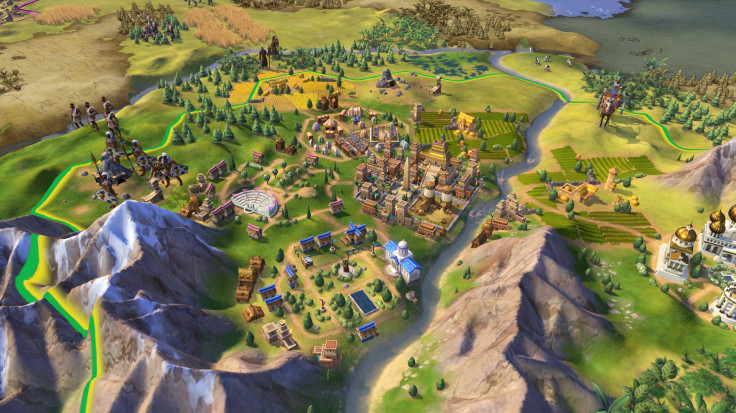
In truth, it’s a simplification to say that Districts are the killer feature in Civ 6. Really, the game-changing concept of adjacency bonuses, as seen most frequently with Districts, makes Civ 6 a far more complex game. In previous games, the most important element of city development was simply where you placed cities in the first place. Now, the bonuses and varying requirements for Districts and improvements add choice and strategy to city development at every step along the way. There’s nothing more satisfying than finding that rare spot with four mountains next to it, allowing for an incredible Campus. The complexity of the game comes out in moments like when you realize that a certain city can either have an incredible Industrial Zone or an influential Theater Square, but not both. You have to choose. Such bonuses affect everything from Districts, to farms, to Natural Wonders, and as we all learn the game better those bonuses will become the critical factor in what makes a great Civ 6 player.
Likewise, the tech tree—now split into separate trees for civics and technology—is designed to change based on how you play the game, in that accomplishing certain tasks halves the cost of specific technologies and civics. Building three archers halves the cost of the technology that gives you the Crossbowman; building lots of Entertainment Districts makes it cheaper to discover sports arenas. Almost every tech has these bonuses and it’s a built-in way for the game to reward civilizations based on what they accomplish. If you’re a military power, you’ll probably lag in culture and the related bonuses, or vice versa. More importantly, it means the tech and civics trees will feel fresh every time, rather than just being a list of items to check off.
Government, Trade And City-States
Civ 6 is chockablock with revamped and new systems, to the extent that the Twitterati have said the game feels more like a game that already has an expansion or two on top of it. That’s a good thing—there’s a ton of content to jump into right away. The trade system expands and updates the one introduced in Civilization V: Brave New World and is integrated more closely into the game. Traders build roads as they travel and rather than being an inconvenience, it feels organic and natural. Of course roads spring up where there are trade routes. And the trade system now feels like a key part of your economy, rather than a tack-on. Domestic trade routes are also now much more viable, giving you—wait for it—yet another interesting choice to make. Do you send your trade routes out to city states for a small bonus, keep them internal to boost growth and production, or go abroad for the biggest bonuses to culture, science and cash, while giving your opponent a road leading right to you?
We’ve talked before about how cool the City State mechanics in Civ 6 are, but it bears repeating. Once again, a few small refinements from systems in Civ V totally transform how a mechanic feels. In the last game, influence with City States decayed over time and was hard to get, resulting in an ever-escalating race of diminishing returns for City State affection. Now, civilizations accrue Envoys over time, which can be sent to a City State permanently. All civs get bonuses from City States they’ve sent Envoys to, but the one with the most Envoys gets an alliance and a bonus unique to that City State. Competitions with other civs over a City State now have clear costs and clear benefits.
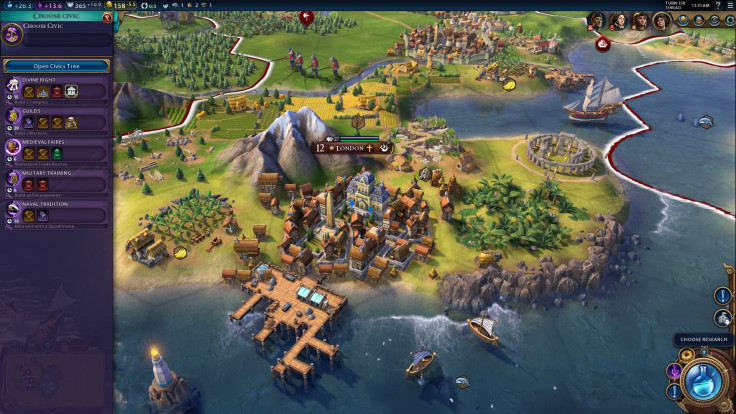
The new government system of Civ 6 ties everything else together. Instead of fixed Policies, government types allow players to choose their general focus between military, economic and diplomatic orientations. Each government type has a certain number of slots in each category. Discovering Civics unlocks cards that fit into those slots and provide specific bonuses. It’s a good system because the bonuses can be changed very regularly; you can adapt your government to new circumstances whenever you discover new Civics. In practice, you’ll probably find you stick with what you have unless you discover something better or need to dramatically switch tactics, but it’s good to have the option.
The game fixes what many of us consider one of the biggest flaws in Civ V: the limitation on expansion. With global happiness and many of the other growth penalties in Civ V gone, Civ 6 allows wide and tall empires once again. Settlers and Districts increase in cost as an empire grows, so there are some checks on your growth, but you can use domestic trade routes to pump up new cities quickly, even in the late game. It’s finally worthwhile to expand again and build a true empire… and bigger empires tend to do better. It’s a big change.
Flaws, But No Dealbreakers
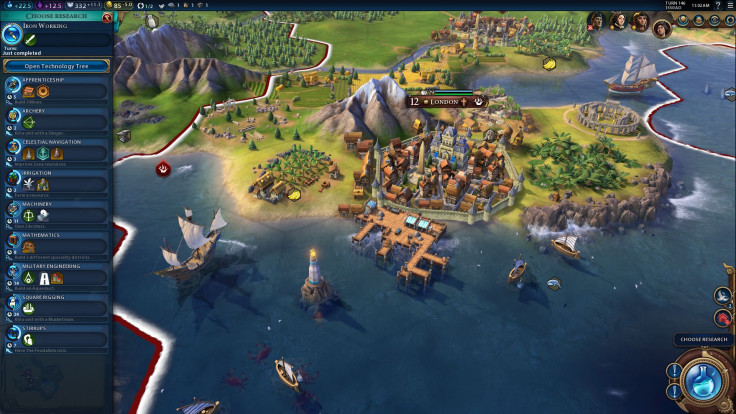
Civilization 6 is a major step forward for the series, especially its inventive new mechanics. However, the game is certainly not perfect. Some of its flaws are legacies of Civilization V; others are all its own. The legacy of the one-unit-per-tile rule introduced in Civ V is much improved in this version thanks to the addition of support units, Corps and Armies, and a challenging method of city conquest, but military strategy still feels a bit behind its Civ 4 days (I miss my Stacks of Doom!)—even if wars are more engaging turn to turn, there’s less depth overall.
Diplomacy is much more transparent than Civ V, and the addition of civilization and hidden agendas makes some goals more clear. But the AI is still somewhat cryptic and arbitrary, and—unlike in Civ 4—it’s hard to make friends and allies for life, let alone to build a friendly coalition. In a first full play-through, it feels like sooner or later everyone will turn against you. Maybe that will change with more experience. Other systems, like Tourism and Religion, have somewhat more complexity but are broadly the same as they were in Civ V. Take espionage: the basic idea is the same, but the mssions are much more powerful (perhaps too powerful). And all the systems interlock in unique ways that will take a long time to fully suss out strategically.
A few bigger problems in Civilization 6 will hopefully improve over time: First, the game is actually a little buggy and crashy for a lot of players. Patches will undoubtedly fix this soon enough, but it’s certainly irksome for the moment.
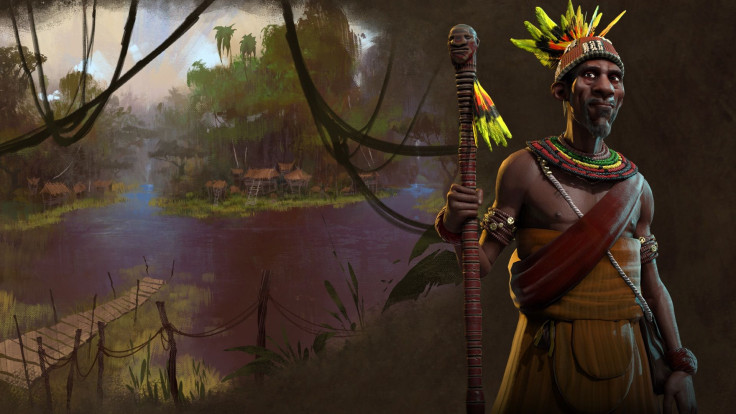
Second, the list of civilizations is surprisingly Euro-centric, with 10 of the 21 civs coming from the European continent, just two from the Americas, and major Asian civilizations like Persia, Korea and anyone from Indochina notably absent. It’s a surprising oversight from a series that has generally gotten more diverse over time (that said, the inclusion of new civs like Kongo and Scythia is a welcome change).
Third, the game’s AI actually seems a little weak—at least on a first play-through on King difficulty level. By the end of the game, I’m fighting with airplanes while most other civs are still building medieval infantry—even though they have industrial-era technology. The AI does make good use of Districts, but still seems to lag behind in technology and culture. Hopefully patches can improve this as well. Lastly, and shockingly, there’s no Earth map included with the game. We’re going to have to rely on modders for now.
Civilizaton 6: As Complicated As It Should Be
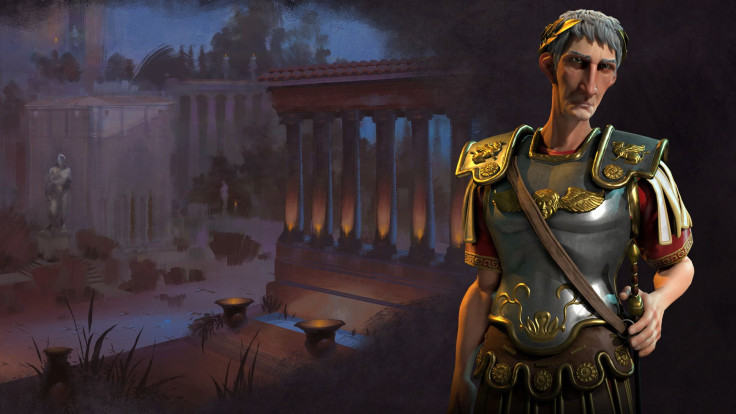
Civilization 6 actually has quite a bit of a learning curve, even if you already know Civ V pretty well. You will absolutely need to use the Civilopedia—which has a lot of information, but sometimes lacks the full details on how features like Amenities (get luxury resources!) or flight missions or espionage work. There will be a lot of trial and error in your first few playthroughs.
Civ 6 is far more complex and has much more depth than Civ V, which will give the game more staying power and makes it a much better strategy game. And new players don’t need to learn everything right away. You can ease in over time and learn the details as you go.
The ultimate question for many longtime strategy gamers is whether Civilization 6 is better than Civilization 4, the highlight of the series. Civ V definitively fell short, although Brave New World made the game much more interesting. Civ 6 is another animal altogether. Its strong board game influence means it isn’t trying to compete with hyper-realistic games like Hearts of Iron or Europa Universalis. Nor is the game trying to copy the glory days of Civilization 4. It’s doing something uniquely different, something we haven’t really seen in the PC strategy genre before—a fusion of strategy games, board games and the series own legacy. Is Civ 6 better than Civ 4? My Steam playtime will have the answer five years from now.

















